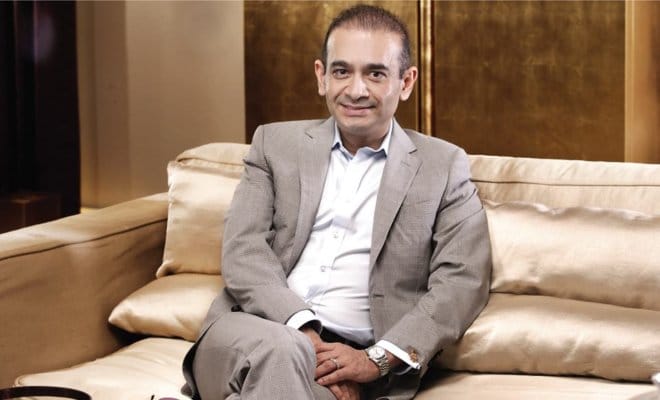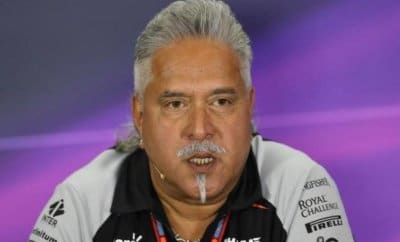Business
Indian Govt Plans Fugitive Economic Offenders Bill to Check Absconding Defaulters

Nirav Modi
Photo: Facebook
The proposed law includes provision to settle the defaulters' dues through attachment and disposal of their properties in cases where the offenses are worth Rs 100 crore or more.
The Indian government is planning to introduce the Fugitive Economic Offenders Bill in the Parliament in a bid to tighten the noose around defaulters who flee the country. The draft bill proposes confiscation of assets of those fleeing India to avoid being accused, or refusing to come back to the country, in cases that involve a sum of Rs 100 crore or more.
The Union Law Ministry approved the Finance Ministry’s draft of the bill in September 2017, and the Narendra Modi government is now planning to introduce it in the Parliament next month during the second the part of the Budget session, Moneycontrol.com reported. The proposed law includes provision to settle the creditors’ dues by disposing properties of defaulters in cases that are associated with an amount of at least Rs 100 crore.
The draft bill came after an announcement was made in the Union Budget 2017-18 that the government was planning to propose a legal measure to enable seizing assets of economic offenders who escape to foreign countries to get away from the law of the land.
According to the draft bill, the Fugitive Economic Offenders Bill, 2017 provides for measures to deter economic offenders from evading the process of Indian law by remaining outside the jurisdiction of Indian courts, thereby preserving the sanctity of the rule of law in India.
“Fugitive economic offender means any individual against whom a warrant for arrest in relation to a scheduled offence has been issued by any court in India, who leaves or has left India so as to avoid criminal prosecution; or refuses to return to India to face criminal prosecution,” the bill stated, the Hindu reported.
According to the proposals, under the Prevention of Money Laundering Act (PMLA), the Enforcement Directorate (ED) will be authorized to start the proceedings. It also has a provision that will enable repayment of dues to creditors by disposing off assets that have been seized, in an instance where the accused offender continues to escape from being prosecuted.
The draft bill’s schedule lists that it will be applicable to several financial and allied offences, stipulated under the Indian Penal Code, Prevention of Corruption Act, Securities and Exchange Board of India Act, Customs Act, Companies Act, Limited Liability Partnership Act and the Insolvency and Bankruptcy Code.
The proposed law is significant in light of reports of the recent bank frauds allegedly committed by billionaires such as jeweler Nirav Modi and his family members who are now overseas as well as liquor baron Vijay Mallya who is now in the United Kingdom.
Diamond merchant Nirav Modi, who has dressed celebrities such as film stars Kate Winslet and Priyanka Chopra, was accused of involvement in a Rs 11,400 crore bank fraud earlier this month. Modi, who grew up in a family based in Antwerp, Belgium, now faces a case under the Prevention of Money Laundering Act based on a complaint lodged by the state-run Punjab National Bank (PNB). Modi’s home, showroom and offices in Mumbai were raided by the Enforcement Directorate on Feb.15.
The Ministry of External Affairs on Feb.16 suspended the validity of the passport of billionaire diamond merchant Nirav Modi.
Mallya, meanwhile, was ordered by the UK High Court on Feb. 12 to pay an estimated $90 million to Singapore-based aircraft leasing company BOC Aviation in claims. The case, dating back to 2014, is related to the leasing of aircraft by Mallya’s now defunct Kingfisher Airlines.



You must be logged in to post a comment Login